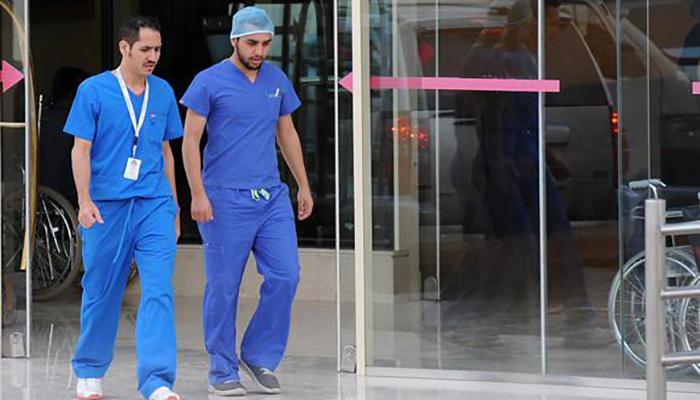
KSA hospitals waste millions in medicines
Government health facilities are wasting millions of riyals in medicines through mismanagement, lack of standardized dispensing, and theft, according to sources quoted in a local publication recently.
Some facilities buy too much drugs, while there is a measure of fraud with health workers taking home medicines for their families, they claimed.
Abdullah Al-Zahrani, chairman of the regional committee of the Saudi Pharmaceutical Association, said the wastage by some pharmacists at hospitals and primary health care centers cannot be denied.
He said wastage varies from one hospital to another. The main problem is the absence of standardized medication records for each patient, and more than one file for a single patient at several hospitals.
Another problem is that drugs expire before being disbursed, particularly those with short validity periods, he said. Al-Zahrani said most wastage occurs with drugs needed for rare diseases.
Ibrahim Al-Saraa, chairman of the board of the Saudi Pharmaceutical Association and of the Research and Scientific Publishing Committee, acknowledged that there is wastage at every hospital’s pharmacy.
He said that pharmacists and physicians should share this responsibility. He said there are also administrators who take medication home for their relatives, but claimed this represents only 1 percent of total wastage.
He said a major problem is that hospitals buy huge quantities of medicines in bulk through tenders, which results in this wastage. This places pressure on the Health Ministry’s resources, which could be better used to improve health services for patients.
Although there is an official program for hospitals to exchange surplus drugs, Al-Saraa said the program is not efficient because a single body does not oversee this process.
“It is difficult to determine the exact quantity of wasted medicines because statistics are not announced.” He said that if internal audits are made public, this could provide some indication of mismanagement by hospital administrators.
To provide an example that would indicate the numbers involved, he said that it costs SR85,000 for a tube of medication to treat a certain type of cancer.
The Saudi Pharmaceutical Association has organized several awareness workshops on how to prevent wastage, but the impact has been limited because of an absence of clear procedures to regulate waste levels, he said.
Some facilities buy too much drugs, while there is a measure of fraud with health workers taking home medicines for their families, they claimed.
Abdullah Al-Zahrani, chairman of the regional committee of the Saudi Pharmaceutical Association, said the wastage by some pharmacists at hospitals and primary health care centers cannot be denied.
He said wastage varies from one hospital to another. The main problem is the absence of standardized medication records for each patient, and more than one file for a single patient at several hospitals.
Another problem is that drugs expire before being disbursed, particularly those with short validity periods, he said. Al-Zahrani said most wastage occurs with drugs needed for rare diseases.
Ibrahim Al-Saraa, chairman of the board of the Saudi Pharmaceutical Association and of the Research and Scientific Publishing Committee, acknowledged that there is wastage at every hospital’s pharmacy.
He said that pharmacists and physicians should share this responsibility. He said there are also administrators who take medication home for their relatives, but claimed this represents only 1 percent of total wastage.
He said a major problem is that hospitals buy huge quantities of medicines in bulk through tenders, which results in this wastage. This places pressure on the Health Ministry’s resources, which could be better used to improve health services for patients.
Although there is an official program for hospitals to exchange surplus drugs, Al-Saraa said the program is not efficient because a single body does not oversee this process.
“It is difficult to determine the exact quantity of wasted medicines because statistics are not announced.” He said that if internal audits are made public, this could provide some indication of mismanagement by hospital administrators.
To provide an example that would indicate the numbers involved, he said that it costs SR85,000 for a tube of medication to treat a certain type of cancer.
The Saudi Pharmaceutical Association has organized several awareness workshops on how to prevent wastage, but the impact has been limited because of an absence of clear procedures to regulate waste levels, he said.
Share:
ADD TO EYE OF Riyadh
MOST POPULAR
Jarir lowers prices to ensure strong market share: Chairman
Sunday 21 April, 2024 10:20Inaugural SaudiFood Manufacturing show to put spotlight on Kingdom’s F&B manufacturing industry
Monday 22 April, 2024 9:06PIF inks deal to acquire stake in stc’s TAWAL for SAR 8.7B
Monday 22 April, 2024 9:35 ×

























